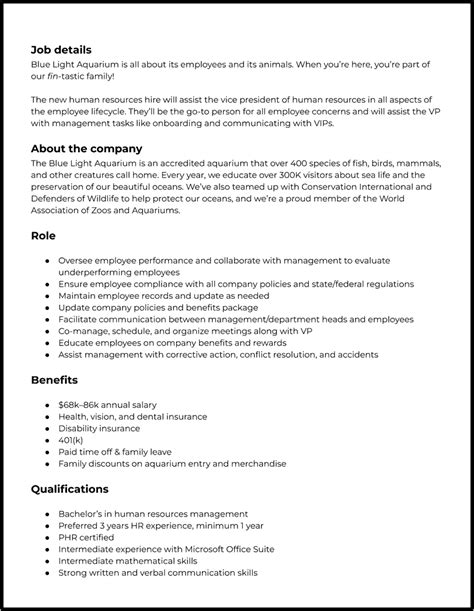The human resources (HR) industry has undergone significant transformations in recent years, driven by technological advancements and changing workforce demographics. The rise of HR technology, or HR tech, has created new job opportunities for professionals who can effectively leverage technology to improve HR processes and enhance the employee experience.
HR tech jobs are in high demand, and understanding the job description and requirements is essential for those looking to pursue a career in this field. In this article, we will delve into the world of HR tech, exploring the various roles, responsibilities, and requirements associated with HR tech jobs.
What is HR Tech?
HR tech refers to the use of technology to streamline and improve HR processes, such as recruitment, talent management, benefits administration, and employee engagement. HR tech encompasses a range of tools and systems, including HR information systems (HRIS), applicant tracking systems (ATS), and performance management software.
Benefits of HR Tech
The implementation of HR tech can bring numerous benefits to an organization, including:
- Improved efficiency and productivity
- Enhanced employee experience
- Better data-driven decision-making
- Increased compliance and reduced risk
- Cost savings

HR Tech Job Description
HR tech professionals are responsible for designing, implementing, and maintaining HR technology systems. Their primary goal is to leverage technology to improve HR processes, enhance the employee experience, and drive business outcomes.
Some common HR tech job roles include:
- HRIS Analyst
- HR Technology Manager
- Talent Management Specialist
- Recruitment Technology Specialist
- Benefits Administration Specialist
HR Tech Job Responsibilities
HR tech professionals are responsible for a range of tasks, including:
- Designing and implementing HR technology systems
- Configuring and testing HR software
- Providing training and support to HR staff and employees
- Analyzing HR data to inform business decisions
- Ensuring compliance with regulatory requirements
- Troubleshooting technical issues

HR Tech Job Requirements
To be successful in an HR tech role, candidates should possess a combination of technical, business, and interpersonal skills. Some key requirements include:
- Bachelor's degree in Human Resources, Computer Science, or a related field
- Experience with HR technology systems, including HRIS, ATS, and performance management software
- Strong analytical and problem-solving skills
- Excellent communication and interpersonal skills
- Ability to work in a fast-paced environment and prioritize multiple tasks
- Strong business acumen and understanding of HR processes
Technical Skills
HR tech professionals should possess technical skills, including:
- Proficiency in HR software, such as Workday, BambooHR, or ADP
- Experience with data analytics and reporting tools, such as Excel, Tableau, or Power BI
- Knowledge of cloud-based technologies, such as AWS or Azure
- Familiarity with cybersecurity principles and data protection regulations

HR Tech Career Path
HR tech is a rapidly growing field, with numerous career advancement opportunities. Some common career paths for HR tech professionals include:
- HRIS Analyst to HR Technology Manager
- HR Technology Manager to Director of HR Technology
- Talent Management Specialist to VP of Talent Management
- Recruitment Technology Specialist to Director of Recruitment
Salary Expectations
HR tech salaries vary based on factors, such as location, experience, and industry. However, here are some approximate salary ranges for HR tech professionals:
- HRIS Analyst: $60,000 - $80,000 per year
- HR Technology Manager: $80,000 - $110,000 per year
- Talent Management Specialist: $70,000 - $100,000 per year
- Recruitment Technology Specialist: $65,000 - $95,000 per year






What is HR tech?
+HR tech refers to the use of technology to streamline and improve HR processes, such as recruitment, talent management, benefits administration, and employee engagement.
What are the benefits of HR tech?
+The implementation of HR tech can bring numerous benefits to an organization, including improved efficiency and productivity, enhanced employee experience, better data-driven decision-making, increased compliance and reduced risk, and cost savings.
What are the technical skills required for HR tech professionals?
+HR tech professionals should possess technical skills, including proficiency in HR software, experience with data analytics and reporting tools, knowledge of cloud-based technologies, and familiarity with cybersecurity principles and data protection regulations.
In conclusion, HR tech is a rapidly growing field that offers numerous career advancement opportunities for professionals who possess a combination of technical, business, and interpersonal skills. By understanding the job description, requirements, and benefits of HR tech, individuals can make informed decisions about their career paths and take advantage of the exciting opportunities available in this field.
